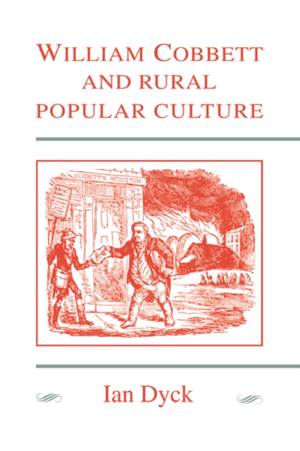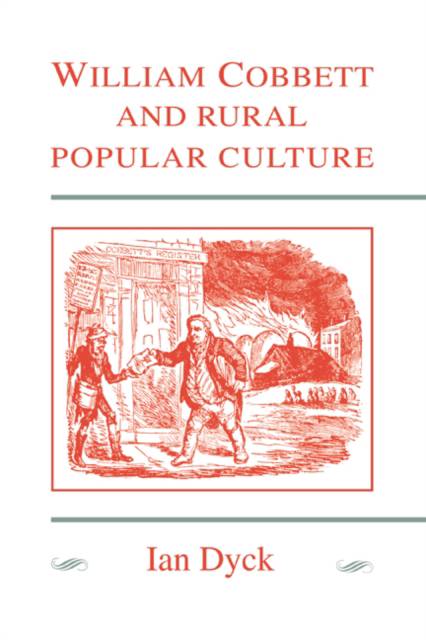
- Retrait gratuit dans votre magasin Club
- 7.000.000 titres dans notre catalogue
- Payer en toute sécurité
- Toujours un magasin près de chez vous
- Retrait gratuit dans votre magasin Club
- 7.000.0000 titres dans notre catalogue
- Payer en toute sécurité
- Toujours un magasin près de chez vous
Description
This is the first rural and cultural study of the great English countryman William Cobbett (1763-1835). It binds Cobbett's radical career to his rural heritage and to the experiences and politics of agricultural workers during the early nineteenth century. As a radical, Cobbett's first quest was to represent the hardships of the labouring poor, and he adopted the labourers' cultural experiences and class consciousness as the basis of his political platform. He revolutionized press history by joining the 'pedlar's pack', from where he dispensed his two-penny broadsheets along with other varieties of popular literature. The rural labourers understood Cobbett because he articulated their beliefs and values as expressed in their own folksongs and broadside ballads. They embraced Cobbett as a radical leader and as an educator, heeding his moral instruction, his treatises on cottage economy, and his prescriptions on the recovery of Old England. Cobbett lived and moved among the labourers, and knew their political or economic grievances; thus long before the 'Captain Swing' rising he forecast the date and patterns of the revolt. His predictions came to pass and he became the single most important leader of the insurrection. His position of authority in the villages carried him forward in the cause of the Great Reform Bill and the Old Poor Law, so that by the end of his eventful career he was the sole public exponent of the cottage charter. This is a major and original work on Cobbett, and represents a breakthrough in the study of rural popular culture and in Cobbett scholarship. It will appeal strongly to a wide range of social and political historians, and have much value for all those interested in the language of class, the evolution of the English language, and the history of journalism.
Spécifications
Parties prenantes
- Auteur(s) :
- Editeur:
Contenu
- Nombre de pages :
- 332
- Langue:
- Anglais
Caractéristiques
- EAN:
- 9780521021708
- Date de parution :
- 03-11-05
- Format:
- Livre broché
- Format numérique:
- Trade paperback (VS)
- Dimensions :
- 156 mm x 234 mm
- Poids :
- 467 g

Les avis
Nous publions uniquement les avis qui respectent les conditions requises. Consultez nos conditions pour les avis.






